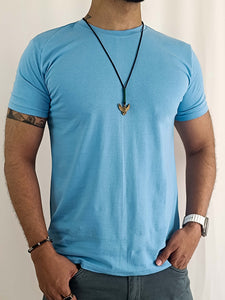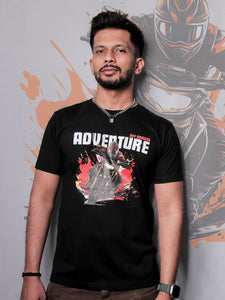How to Start a Clothing Brand in India: A Detailed Guide
Starting a clothing brand in India can be a rewarding business opportunity, given the country’s booming fashion industry and increasing demand for unique and customized apparel. However, success requires careful planning, the right strategies, and a strong brand identity. This guide will walk you through how to start a clothing business in India, covering everything from choosing a niche to marketing and sales.
Why Start a Clothing Brand in India?
Pros:
✅ Growing Market: India’s fashion industry is worth billions and continues to expand.
✅ E-commerce Boom: Online shopping has increased drastically, making it easier to sell nationwide.
✅ Low Investment Options: Print-on-demand and dropshipping reduce upfront costs.
✅ Creative Freedom: You can build a brand that reflects your style and vision.
✅ Customization Trend: Personalized and niche-based apparel is in high demand.
Cons:
❌ High Competition: Many brands are entering the market, requiring strong branding and marketing.
❌ Logistics Challenges: Managing deliveries across India can be difficult, especially for remote areas.
❌ Sourcing Quality Material: Finding reliable manufacturers with consistent quality can be a challenge.
❌ Returns and Refunds: Clothing businesses often deal with high return rates due to sizing issues.
Step-by-Step Guide to Starting a Clothing Brand in India
1. Choose Your Niche and Target Audience
Selecting a niche helps your brand stand out. Popular niches in India include:
- Casual Wear: T-shirts, hoodies, sweatshirts
- Ethnic Wear: Kurtas, sarees, Indo-western outfits
- Activewear: Gym wear, sportswear
- Sustainable Fashion: Organic fabrics, eco-friendly production
- Luxury or Designer Fashion: Premium collections with high-end pricing
- Kids’ Wear: Growing demand for stylish children’s clothing
Tip: Study your competition and define your unique selling point (USP) to attract customers.
2. Create a Business Plan
A solid business plan helps you stay on track and attract investors if needed. Your plan should include:
- Brand mission and vision
- Target audience and niche selection
- Product design and pricing strategy
- Sourcing or manufacturing plans
- Marketing and branding approach
- Budget and investment requirements
3. Register Your Business and Legal Requirements
To operate legally in India, register your business under one of the following structures:
- Sole Proprietorship: Ideal for small-scale businesses.
- Partnership Firm: If starting with partners.
- LLP (Limited Liability Partnership): Suitable for growing businesses.
- Private Limited Company: Best for large-scale operations.
You also need:
✅ GST Registration (required for online and offline sales)
✅ Trademark Registration (to protect your brand name and logo)
✅ Import-Export Code (IEC) (if planning to sell internationally)
4. Design Your Clothing Line
If you have design skills, create your own unique clothing designs using tools like:
- Adobe Illustrator
- Canva
- CorelDRAW
Alternatively, hire freelance designers from platforms like Upwork or Fiverr.
Tip: Start with a limited collection to test the market before expanding.
5. Source Materials and Manufacturers
Options for sourcing products:
- Self-Manufacturing: Set up your own production unit (requires investment and expertise).
- Third-Party Manufacturers: Work with manufacturers in textile hubs like Tirupur, Surat, and Ludhiana.
- Dropshipping & Print-on-Demand: No upfront inventory required. The TSHRT offers print-on-demand services, where you focus on design and marketing while we handle printing, packaging, and shipping.
6. Set Up Your Online or Offline Store
Online Store
Start selling through:
- Your own website (Shopify, WooCommerce, Wix)
- Marketplaces (Amazon, Flipkart, Myntra)
- Social media shops (Instagram, Facebook Marketplace)
Offline Store
- Open a retail store in a high-footfall area.
- Supply to multi-brand outlets and boutiques.
Tip: Combining online and offline sales can help expand your brand reach.
7. Branding and Packaging
Branding is crucial in the fashion industry. Focus on:
- A unique brand name and logo
- Professional product photography
- Branded packaging with custom tags and thank-you cards
8. Marketing Your Clothing Brand
Promoting your brand effectively will drive sales. Use these strategies:
- Social Media Marketing: Post regularly on Instagram, Facebook, and Pinterest.
- Influencer Collaborations: Partner with fashion influencers for promotions.
- SEO and Content Marketing: Write blogs on “How to start a clothing brand in India” and other fashion-related topics to drive traffic.
- Paid Ads: Run targeted ads on Google and social media.
- Email Marketing: Engage customers with newsletters and offers.
9. Managing Orders, Payments, and Delivery
To handle orders efficiently:
- Use payment gateways like Razorpay, PayU, or Cashfree.
- Partner with logistics providers such as Delhivery, Shiprocket, or Blue Dart.
- Offer easy returns and exchanges to build customer trust.
10. Scale and Expand Your Business
Once your brand gains traction, consider:
- Launching new product categories
- Expanding to international markets
- Collaborating with other brands or designers
- Opening offline stores or pop-up shops
The TSHRT: Your Dropshipping Partner for Clothing Business
If you want to start your clothing brand without inventory investment, The TSHRT provides dropshipping and print-on-demand services. With us, you can:
- Launch your brand with zero stock risk.
- Get high-quality printed t-shirts with your custom designs.
- Offer fast and reliable shipping across India.
- Focus on marketing while we handle production and logistics.
🚀 Ready to start your clothing brand? Partner with The TSHRT today and build your fashion empire!


















Comments (0)
No comments yet. Be the first to share your thoughts!
Leave a Comment